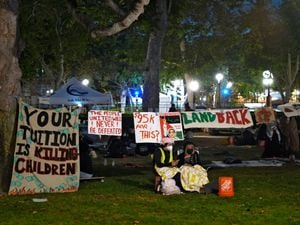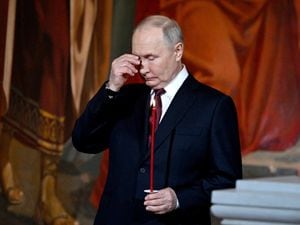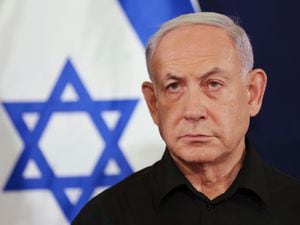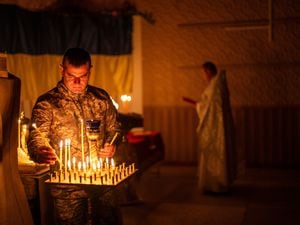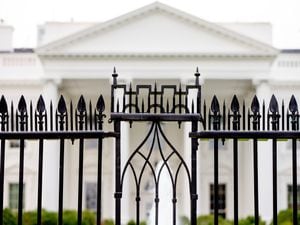Shots fired as Kyrgyzstan’s president declares state of emergency
Clashes have erupted in Bishkek’s central square.
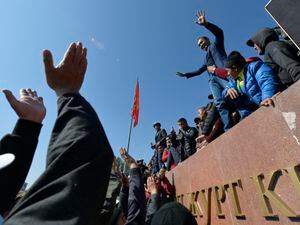
The embattled president of Kyrgyzstan has ordered a near-two-week state of emergency in the capital in a bid to end turmoil sparked by a disputed parliamentary election as clashes between rival factions escalated and gunshots were fired at several political leaders.
Sooronbai Jeenbekov decreed that the state of emergency, from 8pm on Friday to 8am on October 21, could include a curfew and travel restrictions. He also ordered the military to deploy troops to Bishkek to enforce the measure.
But hours after the decree was issued, the Interior Ministry said the state of emergency will only be introduced on Saturday — the confusion reflecting the chaos that has engulfed the country.
Convoys of military trucks were seen driving into the city, but it was not immediately clear whether police and the military would comply with the presidential order.
Mr Jeenbekov has faced calls to step down from hundreds of protesters who stormed government buildings the night after Sunday’s parliamentary vote was reportedly swept by pro-government parties.
The demonstrators also freed former president Almazbek Atambayev, who was sentenced to 11 years in prison in June on charges of corruption and abuse of office that he and his supporters described as a political vendetta by Mr Jeenbekov.

It is the third time in 15 years that protesters have moved to topple a government in Kyrgyzstan, a Central Asian nation of 6.5 million that is one of the poorest to emerge from the former Soviet Union.
Like in the uprisings that ousted presidents in 2005 and 2010, the current protests have been driven by clan rivalries that play a key role in the country’s politics.
Following an initial attempt to break up protests immediately after the vote, police pulled back and refrained from intervening with the demonstrations. Residents of the capital began forming vigilante groups to prevent looting that marked previous uprisings in the country.
Under pressure from protesters, the Central Election Commission overturned the parliamentary vote results and protest leaders moved quickly to form a new government.
An emergency parliament session on Tuesday named legislator Sadyr Zhaparov as a new prime minister, but the move was immediately contested by other protest groups, plunging the country into chaos.

Mr Atambayev spoke to demonstrators who flooded central Bishkek on Friday, urging them to refrain from violence.
“I’m against using force, everything should be done by peaceful means,” he said.
Shortly after he spoke, supporters of Mr Zhaparov attacked pro-Atambayev demonstrators in Bishkek’s central square, hurling stones and bottles.
A man with a pistol fired several shots at Mr Atambayev’s car as it sped away, but the former president was unhurt.
Two other politicians affiliated with Mr Atambayev also had their cars shot at as they left the square, their party said. They were not injured.
Another politician was badly injured amid the clashes in the square, but the circumstances were not immediately clear.
Mr Jeenbekov, who hunkered down for days after the vote, used the infighting between his foes to dig in. He said on Thursday he may consider stepping down, but only after the political situation stabilises.
The president met the new chief of the military general staff on Friday, saying he relies on the armed forces to restore order.
“We must quickly take the situation under control,” Mr Jeenbekov said. “City residents shouldn’t fall victims of political passions.”
Kyrgyzstan is strategically located on the border with China and once was home to a US air base used for refuelling and logistics for the war in Afghanistan. The country is a member of Russia-dominated economic and security alliances, hosts a Russian air base and depends on Moscow’s economic support.
Russian President Vladimir Putin chaired Friday’s session of his Security Council to discuss the situation in Kyrgyzstan, among other issues.
“It was noted that it’s necessary to quickly stabilise the situation to prevent it from sliding into chaos,” Kremlin spokesman Dmitry Peskov said after the meeting.

